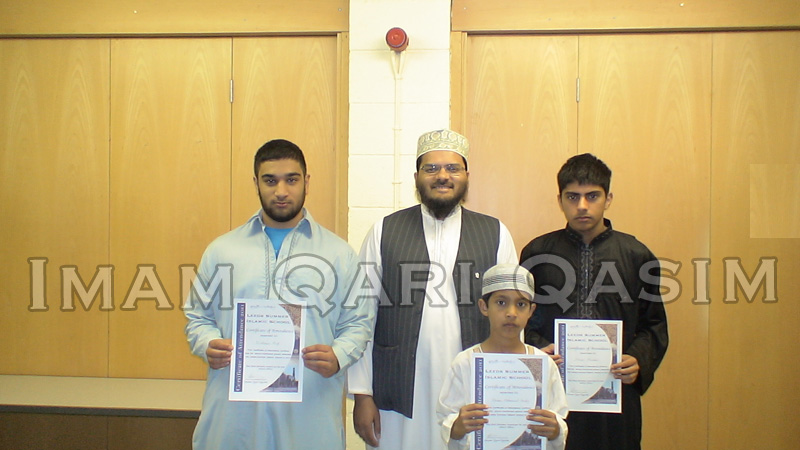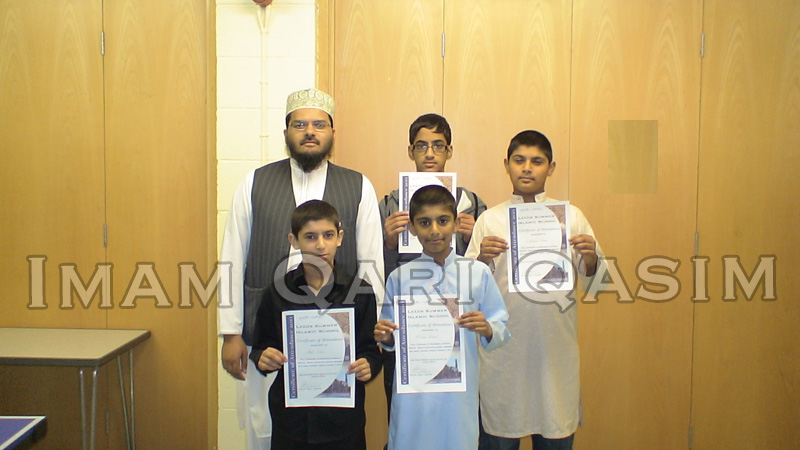Prohibition of lying and its consequences
Hadrat Abdullah bin Massod narrates that Rasulullah said “Save yourself from lying because lying leads you to major sinning and sinning leads you to hell fire. A person lies and seeks opportunities to lie and therefor Allah destines him as a liar.” (Sunnan Abu Dawood)
Bahz bin Hakim said that my grandfather narrates that Rasulullah said “There is punishment for the one who speaks and lies so that he can make other people laugh. There is punishment for such person. There is punishment for such person.” (Sunnan Abu Dawood)

Hadrat Hafs bin Asim narrates that Rasulullah said “it is sufficient for a person to be regarded as a liar if he narrates everything that he hears.” (Sahih Muslim)
This hadeeth shareef prohibits all forms of making, creating, spreading and sharing off false information. Creating false information is not only about lying but it is also about spreading the false information about others.
A person cannot make excuses that he did not lie. Even if he exchanges information without verification then this is also a form of lying.
What this hadeeth shareef tells us is that we have to be very careful what we tell others.
We have to be vigilant about what we hear and what we see. Not everything that we hear and see represents the truth and therefore we must not forward and share everything that our ears hear and what our eyes see. We must verify what we hear and what we are told. Only if it is true and can be verified then we can tell others. We do not want to fall into the category of liars. Specially in the age of Facebook and text messaging where we can share news and posts with each others easily, we need to ensure that what we are sharing represents the truth.
Sharing information without verification creates a lot of problems for the person about whom the information is shared. It causes undue stress for that person. Also it leaves stains on the character of the person sharing the information. The person loses his credibility and integrity. Therefore it is of paramount importance that we do not exchange information without verification.
Hadrat Abu Huraira narrates that Rasulullah said “At the end of time there will be such a Dajjal and liars who will narrate to you such ahadeeth that you nor your grandfathers would have heard of. You must keep away from them and make them keep away from you so that they are not able to misguide you and put you in fitna” (Sahih Muslim).
Hadrat Abu Huraira narrates that Rasulullah said “A person cannot have full Iman until he quits lying. He must not lie even when telling jokes and must not show off even if he deserves it.” (Masnad Ahmad)
Hadrat Samrah bin Jundub narrates that one morning Rasulullah said that last night I saw Jibrail and Mikail in my dream. They took me by my hand and took me to holy land. There I saw a man sitting and another standing next to him, holding an iron hook. He smashed the iron hook into the sitting man’s mouth and took it towards his neck, tearing his body apart. He continued this procedure for long. Jibrail said that the man was being punished because he used to lie and his lies used to spread all over the world. Now he will receive punishment till resurrection.” (Sahih Bukhari)
This is another important reminder for all of us that we must not become involved in lying or cause other people’s lies to spread across the world. Specially during this internet age when information can be spread across the world within seconds and shared with millions of people, we have a moral duty to ensure false and incorrect information is not spread by us. We dont want to be part of the group that will receive Allah’s punishment for spreading lies among the people.
When is it permissible to lie?
Lying is a major sin and it is Haram to do so. However, Allah Almighty and His blessed Prophet has informed us of situations where lying could be allowed.
Hadrat Asma bint Yazid narrates that Rasulullah said “It is not permissible to lie apart from three situations: A husband lies to his wife so their marriage continues; telling lies to the enemies during war; telling lies to create peace among the people.” (Tirmidi)
Allama Shami writes:
“Every good objective that can be achieved by telling truth or lying, it is haram to lie to achieve that objective. If a good objective can only be achieved by lying, it will be allowable to lie to achieve the objective if the objective was desirable.
If the objective was compulsory and it could only be achieved by lying then it would be compulsory to lie to achieve that.
For instance, someone saw that an innocent person was about to be murdered and he could save him by lying, then it would be compulsory for him to lie in order to save the innocent life. Similarly, in order to bring peace to the people, it is permitted to lie.
Likewise, if a person commits adultery or drinks alcohol and is brought to a judge, it is permissible for the person to say that “I did not do it”. This is so because albeit it is immodest to commit such sinful action, it is also immodesty to openly announce such sinful activities.
Similarly, it is also permissible to refuse to disclose another Muslim’s secrets.
It should be considered whether the evil created by lying is more harmful than the mischief created by telling the truth. If the evil created by lying is worse then the mischief created by telling the truth, then a person should not lie otherwise he could do so.
If a person is loosing his own right, it is best not to lie in this situation to protect one’s right. But if another Muslim is loosing his right, and by lying this right can be saved, then it is important for a Muslim to lie in order to save and protect the rights of other Muslims.
In summary, a Muslim can lie to protect his life, wealth and honour; and it is compulsory to lie to protect another Muslim’s life, wealth and honour.
We cannot misuse the teachings of Islam. No one can make a habit of lying and give excuse that Islam encourages us to lie to save our honour and the honour of others.
Permissibility of lying in poetry and in exaggeration
Exaggeration is not considered as lying. For instance, if a person says: “I have come to you thousand of times.” Such talk will not be considered as lying as the person is only meaning to say that “I have come to you many times”.
The use of exaggeration can be approved through the following saying of Rasulullah: “But Abu Jahl does not take his stick off his shoulders”. Here the hadeeth of Rasulullah means to apply that Abu Jahl beats his wife a lot.
Similarly, the use of false informationis also allowed in poetry.
Ta’reed تعریض and Taoriyah توریہ
Majority of the Muslim jurisprudents have allowed the use of Ta’reed and Taoriyah in the case of lying and giving false information. In fact, the jurisprudents comment that if one uses Ta’reed or Taoriyah, he would never have to lie and commit sinful actions.
What is Ta’reed?
Ta’reed means to make a veiled reference. Not to talk about something in a direct and clear manner but to talk about it in a vague manner.
Hadrat Imran bin Haseen narrates that Rasulullah said: “Ta’reed (indirect talk) provides a way out from lying”. Hadrat Umar said: “the use of veiled reference delivers a person from lying”.
For instance, if someone wishes to propose to a woman during her iddah (the period a woman must observe after the death of her husband or after divorce), he should not make a direct proposal (as it is unlawful for a woman in her iddah to remarry). Instead, he can make an indirect reference to marriage by saying “I need to marry” or “you are very handsome”.
In summary, in our conversation when we specifically mention one person but we mean to mention another person, then this is Ta’reed – indirect referencing.
For instance, if a high ranking officer is always late for work and there is no one who can reprimand him due to his high status and respect, then someone can mention to him that “the workers are always late in here”. In such conversation, the person is mentioning the “workers” but he is really referring to the officer.
What is Taoriyah?
Now lets look at Taoriyah. Taoriyah means to “conceal” and to “hint”. Allama Zubaidi writes that Taoriyah is to make something else apparent by concealing the real facts. For instance, when Rasulullah planned to start a journey, specially to fight with other tribes, he would not disclose his plans openly to everyone to ensure the enemies would not find out of his plans and plan a counter attack or to prepare themselves with greater force. He concealed his real plans with the use of Taoriyah.
Allama Tuftazani says that Taoriyah also means “ambiguity”. For instance, if a word has two meanings, nearer and further or direct and indirect, and a person uses the word in such a way that he is implying the indirect meaning, but the listener takes the direct meaning.
There are many examples of the use of Taoriyah in Holy Quran and ahadeeth.
فَقَالَ إِنِّي سَقِيمٌ
Prophet Ibrahim said, "I am indeed sick" (as-Saaffat – 37.89)
In this verse we have to analyse what Prophet Ibrahim meant when he said that he was sick. People from the community of Prophet Ibrahim had asked him to participate in their religious festival. The people of Prophet Ibrahim were polytheist and Prophet Ibrahim, being the prophet of Allah and a caller to monotheism, could not participate in their religious activities and therefore he said that he was sick. Was this a lie? Was he really sick or did he mean something else?
In this verse the word “saqeem" has been used. What does “saqeem" mean? The closer meaning of saqeem is bodily sickness but another meaning of saqeem is spiritual sickness. Prophet Ibrahim was not physically sick but he was spiritually sick of the polytheistic practices of his community. His people took the more closer meaning of the word saqeem. They believed he was physically sick whereas Prophet Ibrahim had meant that he was spiritually sick. Thus, this was not a lie but the use of Taoriyah.
Now carrying on with the story of Prophet Ibrahim, the people of Prophet Ibrahim’s community left him behind to attend to their religious festival. Prophet Ibrahim took this opportunity to smash all the idols placed in the temple and placed the axe on the shoulder of the biggest idol. In the evening, people returned and saw the shocking scene at their temple. All their idols had been torn into pieces and an axe was hanging on the shoulder of the biggest idol. Naturally, they were shocked and furious. Instantly they uttered that it must have been the work of Prophet Ibrahim who was a strong opponent of idols and idol worshippers.
Prophet Ibrahim was called to the temple and asked:
قَالُوا أَأَنتَ فَعَلْتَ هَـٰذَا بِآلِهَتِنَا يَا إِبْرَاهِيمُ
They said, "Are you the one who did this to our gods, O Ibrahim?” (Surah Anbiya – 21.62)
Prophet Ibrahim replied:
قَالَ بَلْ فَعَلَهُ كَبِيرُهُمْ هَـٰذَا فَاسْأَلُوهُمْ إِن كَانُوا يَنطِقُونَ
He said: "Nay, this was done by their biggest one! ask them, if they can speak!” (Surah Aniya – 21.63)
In this verse the closer meaning of the words “kabeero-hom haza” is “this biggest idol” and the indirect meaning is “the leader of the community”. Prophet Ibrahim being a prophet of Allah was a leader of the community. In his answer he is indirectly referring to himself that the leader of the community has smashed the idols. Thus Prophet Ibrahim did not tell a lie. With the use of Taoriyah he was abel to direct the committing of the action towards the biggest idol present in the temple. The people also believed that he was referring to the idols and they themselves admitted that these idols could not speak and it could not be verified if they really had broken the other idols. This was the way of Prophet Ibrahim to make the people think that if these idols that they worshiped cannot speak or move then how could they be classed as gods and worshiped.
Hadrat Abu Huraira narrates that once Prophet Ibrahim and his wife, Saira, visited a country ruled by a cruel and unjust king. The king was informed that a very handsome lady was travelling through his country. The king ordered Prophet Ibrahim and his wife to appear before him and once they were in his court asked Prophet Ibrahim: “Who is this lady with you?” Prophet Ibrahim replied: “This is my sister”.
The lady with him was not his sister but his wife. Has Prophet Ibrahim lied here?
Again, we have to analyse the meaning of the word “Okht" used in Prophet Ibrahim’s reply.
The word “okht" has two meanings. The direct meaning is “blood sister” and the indirect meaning is “religious sister”. The king understood that Prophet Ibrahim was referring to Hadrat Saira as blood sister but in fact Prophet Ibrahim referred to his wife as a sister of the same faith.
These are the uses of Taoriyah where you use a word in your speech having two meanings. The listener understands one meaning but you are implying the apposite meaning. Lying does not take place as you do not give false information in your speech.
Allama Shami writes that it is permissible to use Taoriyah and Ta’reed for the right intention, such as in light-hearted humour, just as Rasulullah has said: “Old ladies will not enter paradise” meaning that everyone is paradise will be young.
In summary, the verses of the Holy Quran, the sayings of Rasulullah, the actions of the Sahaba and the writings of the scholars permit that in situations that require us to lie, we could use Taoriyah and Ta’reed to avoid lying.
In particular situations it is permissible to lie, such as to save ones life, wealth and honour. Similarly, it is compulsory to lie to save another Muslim’s life, wealth and honour. If this can be achieved through Taoriyah, it is preferred to do so with Taoriyah.
A Muslim has a choice to lie to protect his own life, wealth and honour. But he does not have a choice to do the same for others. Rather it is compulsory for a Muslim to protect others’ matters even if it requires lying.
(This article has been translated from Tibyanul Quran by Allamah Ghulam Rasool Saeedi)
















